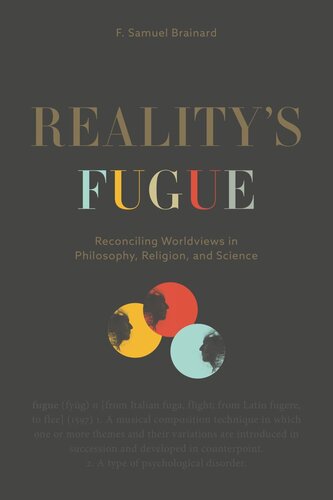

Most ebook files are in PDF format, so you can easily read them using various software such as Foxit Reader or directly on the Google Chrome browser.
Some ebook files are released by publishers in other formats such as .awz, .mobi, .epub, .fb2, etc. You may need to install specific software to read these formats on mobile/PC, such as Calibre.
Please read the tutorial at this link: https://ebookbell.com/faq
We offer FREE conversion to the popular formats you request; however, this may take some time. Therefore, right after payment, please email us, and we will try to provide the service as quickly as possible.
For some exceptional file formats or broken links (if any), please refrain from opening any disputes. Instead, email us first, and we will try to assist within a maximum of 6 hours.
EbookBell Team

4.8
34 reviewsScience, religion, philosophy: these three categories of thought have organized humankind’s search for meaning from time immemorial. Reality’s Fugue presents a compelling case that these ways of understanding, often seen as competing, are part of a larger puzzle that cannot be rendered by one account of reality alone.
This book begins with an overview of the concept of reality and the philosophical difficulties associated with attempts to account for it through any single worldview. By clarifying the differences among first-person, third-person, and dualist understandings of reality, F. Samuel Brainard repurposes the three predominant ways of making sense of those differences: exclusionist (only one worldview can be right), inclusivist (viewing other worldviews through the lens of one in order to incorporate them all, and thus distorting them), and pluralist or relativist (holding that there are no universals, and truth is relative). His alternative mode of understanding uses Douglas Hofstadter’s metaphor of a musical fugue that allows different “voices” and “melodies” of worldviews to coexist in counterpoint and conversation, while each remains distinct, with none privileged above the others. Approaching reality in this way, Brainard argues, opens up the possibility for a multivoiced perspective that can overcome the skeptical challenges that metaphysical positions face.
Engagingly argued by a lifelong scholar of philosophy and global religions, this edifying and accessible exploration of the nature of reality addresses deeply meaningful questions about belief, reconciliation, and being.